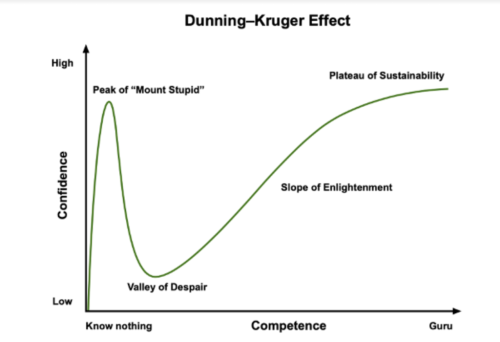
Kaizen in Everything. But Why?
“The only true test of intelligence is if you get what you want out of life.” – Naval Ravikant
If your body is a temple, why do you treat it like a warehouse?
Ask any person on the street if they eat healthily and you’ll more than likely receive a yes or no answer. This is akin to the black-and-white, good-and-bad thinking that permeates our culture. The real answer to this question is a lot more complex, and probably requires a more specific answer, as well as a more specific question.
See, first we have to define what it means to be “healthy”. Does it mean being free from illness or disease? Does it mean having a low-risk of morbidity? Does it mean having a positive relationship with food? Or does it mean performing to the best of your ability?
In any case, it could possibly mean all of the above, but very few know how to, and why they should, adhere to the habits that will help them to live an active lifestyle and a highly fulfilled life. And you know what? It’s nobody’s fault!
See, with so much contradictory information out there at the moment, it’s common that people will feel overwhelmed and not know where to start. This can potentially lead to a couple of things. They may just go on about their business, unhappy with their current habits and lifestyle choices but unsure of how to change them. Thus leading them to stagnate in that pool of information overload.
Or they may go so far down the rabbit-hole of one particular fad diet/dogma, that it becomes more like a religion to them. It’ll rule over all of their life choices, provide them with a support network of similarly stubborn but “woke” followers and simultaneously alienate them from their friends and family.
Mammy is probably not going to agree to cooking a keto-friendly, Christmas dinner. And Dad is likely to throw them out of the house for that very suggestion.

As people seek a simple solution to their nutrition “problem”, they typically look for a type of diet that can be summed up in one concise and easily digestible statement.
“Only eat meat and eggs.”
“Never eat meat or eggs!”
“Eat no processed foods?”
“Only eat foods with calories on the label”
“Eat like a caveman/woman!!!”
“Don’t eat carbs after 6pm…”
“Eat what you want but in an 8-hour window???”
This doctrine is easy to remember, easy to convey and easy to employ (well at least in some cases). The problem is, it usually doesn’t allow for any nuance, individualisation or wiggle-room, on a person-by-person basis.
What if I work shifts and can’t eat within my window? What if I play a sport that requires me to produce high-intensity efforts? What if my gut-biome is telling me that it needs me to eat at least one vegetable? What if I don’t fucking want to drink a tankard of bone broth or wheatgrass juice tonight?
You see our lives may all have similarities, but they’re also incredibly nuanced. This is why it’s so difficult to paint us all with one brush when it comes to our eating habits. What works for one person, may not work for another. In fact cause them to become deeply unhealthy and thus miserable.
So, it has become commonplace in recent years to be ok with what you’re eating, as long as you’re eating in a calorie “fucking” deficit. Unfortunately, though this may solve some a lot of problems for many, it most definitely won’t solve all problems for all.
If we want to fuel our bodies to perform, there are a number of widely-agreed upon truths indicated in the literature.
So then, the problem with the “influencer-esque” simplification of diet to a “calorie fucking deficit”, is that people often take it up as they can eat whatever they want and still be healthy, as long as they put it into their Myfitnesspal app. As long as their little value stays in the minus, they’re going to look and feel great. Well guess what? You probably fucking won’t.
See some of the secrets of the influencer industry, that are probably well known at this stage, are that a lot of influencers are chronically fatigued, deeply dissatisfied with their bodies and suffering from a myriad of mental health problems. They often have developed a really unhealthy relationship with food, in order to look the way they do, and they often don’t look that way all of the time.
And the other point to note, is that it is literally their job to look the way they do. Continually obsessing over the details of their diet. Sandra, who is working a double shift in Tesco tonight, probably could do without counting out how many almonds she’s going to have in her salad. Tony, who is playing a rugby match with his mates at the weekend, could probably do with having something more substantial than a boiled chicken breast and broccoli, prior to taking the field.
See, in the real world, people have to deal with a number of stressors, besides what engagement they got on the reel they posted yesterday. How much sleep can I get before the baby wakes up? How can I ace my business meeting today? How many pints of stout can I get in before the pub closes at 11?
These questions and many others, mean that if we are to become “healthy”, we must adhere to our own set of rules, not someone else’s. This is why a diet plan never actually works in the long-term. Education and habit-formation are the only ways to achieve long term results, along with a whole pile of trial and error. We need to empower people to look after themselves and be happy whilst doing so, not sign up for our 12-week Booty Build & Burn cohort 4 times a year!
Unfortunately, meaningful and sustainable change usually isn’t a quick fix. It takes time and effort on the part of both the individual and the practitioner that’s helping them out. This meaningful effort to bring about change, usually comes at a cost that is significantly higher than that of Becky’s E-Book. But it also requires the individual in question, to invest themselves in the process as well.
Habits do not change overnight. It can be a struggle and there will be times when you fall off the horse and have to get back up again. But by reducing the frequency of those falls, you make the small incremental wins that lead to the long-term change to your feelings of “health and wellness”. And you know what, your stress about your health will be significantly reduced once that happens.
Understanding that health is a process, not a destination, is paramount if we’re ever to be happy with ourselves. Patience is key to that process, and that is why the quick-fixes generally don’t work in the long-term.
So if your body is really a temple, then start treating it like one. It needs to be given care and attention regularly if it’s to be maintained. You can only clear out a warehouse so many times before you just leave the rubbish in there to stockpile.
Commit to action and then keep it up. It’s a long old life after all.

“The only true test of intelligence is if you get what you want out of life.” – Naval Ravikant

So, we can see that when it comes to our training, a certain volume of work when paired with adequate recovery is positive for our development, but if that same intensity of work is mismanaged and spiked, then the same exercise intensity can be toxic to the athlete.

Unfortunately, it takes a fall from the peak of mount stupid, on top of the Dunning-Kruger curve, for many of these lessons to land home.
Here to help you achieve your health and performance goals.
At Petey Performance, I’ll assist you every step of the way. What’s stopping you?
Take ownership today.
© 2021 All Rights Reserved
Subscribe to Petey Performance and get updates on new posts plus more exlusive content.